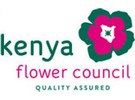The world is experiencing the COVID-19 pandemic, impacting world economies in unprecedented ways. It may be too early to determine the actual long-term impact on supply chains and the Kenyan economy, but what’s evident is that the economic impact of the coronavirus outbreak has begun taking hold in Kenya, with businesses and their employees suddenly confronting a harsh new reality of what lies ahead. This is much more defined in agriculture, particularly the fresh produce industry.
The Kenya cut flower industry is already experiencing the impact on the restriction of movement of people in the destination market countries. Last week (UK Mothers’ Day), traditionally is one of the biggest opportunities for Kenya flower exports but direct sales orders have been cut by more than 50% and sales on the Dutch Auction are down by 70% and prices are significantly down on reduced demand. Official advice to close public gatherings and to keep people's transit/movements as low as possible by destination countries, has severely restricted consumer activity. Consequently, all Kenyan farms have drastically reduced export volumes to below 70 per cent, with a sizable number suspending exports altogether.
The ripple effect for the Kenya flower industry include:
- Downsizing and closure of businesses
The lack of sales will severely impact cash flow and will not meet fixed overhead costs. Farms will not be able to sustain their existing workforce. This situation is expected to persist for the next few months and businesses will be forced to either send workers on unpaid leave or radically lay off workers. This could trigger labour unrest and further destabilise the floriculture industry in Kenya.
- Limited cargo space
With the growing cancellation of inbound passenger flights, there is going to be limited space to ferry flowers. Additionally, freighters may not be able to sell all their freight space and will look for other destinations to pick up cargo.
- Disruptions in operating capital for businesses
With reduced earnings companies will not be able to meet the cost of operations. This is against the backdrop of delayed Value Added Tax refunds, poor prices in the international market in 2019, low volumes this year during the Valentine's period and escalating cost of doing business locally.
If the situation is to be contained, there is need for a strong fiscal response by the national government to put measures in place to support the flower industry to get through these critical times.
Kenya Flower Council is therefore asking the national government to consider the following:
- Fast-track VAT refunds
"The Government should expedite all the VAT refunds owed to flower companies. This will improve cash flow and go some way in the short term to make up for limited sales from the export markets. - Allow Freight Handlers to continue operations unhindered
We request that the Government to continue facilitating freighters on airlifting Kenya’s exports unhampered, with full support by KEPHIS and KAA. It could also consider reducing landing fees at JKIA. Similarly, trucks carrying produce should not be harassed between farms and the airport. - Suspension on VAT on inputs and spare parts
The Government should consider suspending VAT on farm inputs, including fertilisers, pesticides, machinery etc., to help meet other costs production costs. - Government to support the industry in labour management and facilitate discussions with the Unions and Employee Organisations
Flower production and export is a labour intensive 24hr operation that cannot be serviced working from home. Reduced sales will inevitably lead to reduced labour requirements. How this can be achieved needs all parties to recognize the unique nature of the pandemic and the effect it is having on the entire supply chain. Farms will put in place measures to ensure health and safety of workers, guided by the laid down guidelines and protocols for COVID-19. - Moratorium on principal repayment of term loans
We request that Government engages lenders to extend moratorium period to individual growers during the current financial hardship. The next several months will be a very difficult time financially for the industry to keep operational albeit at reduced levels. Hopefully the industry will be able to recover its markets and return to normality after this period of major uncertainty.
The floriculture industry currently ranks as one of the economy’s fastest growing industries and something we and the Country is proud of. Cut flowers are among the four leading foreign exchange earners in the country - generating important forward and backward linkages with sectors such as manufacturing and agro-processing, inputs markets, and transportation services.
The industry contributes significantly to the achievement of Kenya’s Vision 2030 and the Governments Big 4 agenda and the National Export Development and Promotion Strategy. Leveraging cutting-edge technology, the floriculture industry in Kenya provides direct employment to an estimated 150,000 people, majority women, and overall, creates employment for more than a million people indirectly, impacting in excess of 4 million lives.
Kenya is home to the world’s best flower producers. Globally, it is among the top four countries in production of cut flowers and ornamentals. We need Government support to save our industry."
For more information: Kenya Flower Council
Kenya Flower Council
Suite 12, 4th Floor,
The Greenhouse Building,
Adams Arcade, along Ngong Road
Mobile: (254) (0)733 639 523
info@kenyaflowercouncil.org
kenyaflowercouncil.org
